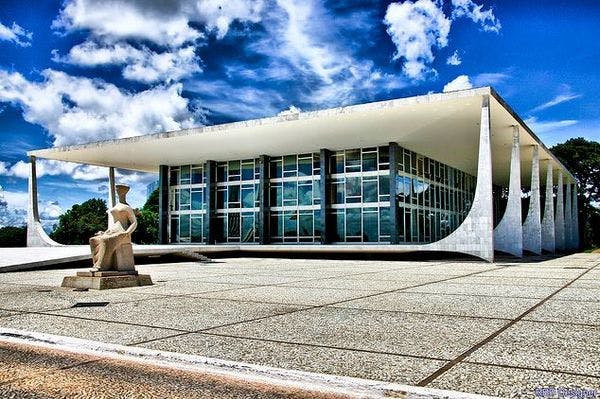Brazilian Supreme Court discusses decriminalisation of drug use
The Brazilian Supreme Court began the trial of a lawsuit that could decriminalize the possession of drugs for personal use last week. The trial is one of the most awaited on the year and can become a historic event in the debate on drug policy in Brazil. The appeal to the highest judicial court in the country is challenging the constitutionality of Article 28 of Law 11.343 (Brazilian Drug Act) which punishes the possession of drugs for personal use. The Public Defense Office of Sao Paulo claims that the punishment for users own consumption goes against constitutional principles, especially the inviolability of intimacy and privacy and criminal principles of causing a relevant damage to society.
The appeal on drug possession reached the Supreme Court in 2011 and seeks to overturn the conviction of a mechanic, while he was in prison, who admitted owning three grams of marijuana found by prison guards. The incident occurred in July 2009, and Francisco Benedito de Souza was sentenced to community service for two months. The sentence was maintained in the high court of Sao Paulo, and the Public Defense Office of São Paulo, who took over the defense Souza, took the case to the Federal Supreme Court on grounds that the case has a broad repercussion and which decision could be applied to the decision of many other similar cases in the country.
Along with the Public Defenders Office, ten other entities support the Article 28’s unconstitutionality. They are acting as amici curiae (or "friends of the court"), assisting the Federal Supreme Court ministers with technical details and research on the subject. They are the Brazilian Institute of Criminal Sciences (IBCCRIM), the Instituto Sou da Paz, Viva Rio NGO, the Institute for Protection of Defense Law (IDDD), the Brazilian Commission on Drugs and Democracy (CBDD), the Brazilian Association for Social Studies of Psychoactive’s use (Abesup), Conectas, the Earth, Labor and Citizenship Institute, and the Prison Pastoral.
Last week also, a group of health professionals and scholars issued a manifesto in favor of decriminalization. With more than 200 signatures, the text points out that, from an epidemiological point of view, people with problems caused by drug use are the exception.
Earlier this year, 31 Brazilian cities held the Marijuana Parade, taking more than 20 thousand people to the streets, in favor of the drug legalization. The social organizations have been promoting parades like this since 2007 without leaders and hierarchies, and argues that the State must not control individual behavior that does not affect the life of others, such as the use of marijuana.
Another recent development that is very relevant to the discussion was the reclassification of cannabidiol by Anvisa, the Brazilian Health Surveillance Agency. In early 2015, the derivative of marijuana, which is legalized in the US, ceased to be prohibited in Brazil and has joined the list of medicines approved for therapeutic use, but subject to control.
One of the biggest criticisms to the Brazilian drug law is that it lacks of objective criteria, such as the determination of amounts of substances allowed, which leaves at the total discretion to the police officer the definition between user and drug dealer. This situation causes that more and more users have being prosecuted as drug dealers, especially the poor ones. Today, 27% of Brazilian prisoners were convicted of drug trafficking and that number increases in the case of incarcerated women, who are more than 60%. The establishment of specific amount of drugs may help the users and drug dealers distinction, and may be one of the solutions to the problem of prison overcrowded population, that has already reached the number of 608,000 prisoners and a deficit of 231,000 vacancies, according to the last Penitentiary Information National Survey 2014.
The first decision issued by Min. Gilmar Mendes followed the main arguments sustained by the amici curiae and the Public Defence Office of Sao Paulo and quoted the drug law reform of other countries that adopted alternative means to fight consumer abuse. Instead of criminal punishment, the drug policy fosters health treatment and social reintegration of drug users. He stated that the criminal punishment of drug use does not guarantee the public health and security, therefore it is a disproportional measure in relation to individuals fundamental rights. “There is not enough and uncontroversial evidences that the fight against drug use is the most efficient approach to fight the drug trafficking. On the contrary, despite the said drug war, it is clear the increase of drug trafficking during the last decades”. There are still more 10 judges to issue their decision.
Keep up-to-date with drug policy developments by subscribing to the IDPC Monthly Alert.
